Record revealed
James Callaghan's notes on policy ideas
In the autumn of 1978, the Labour Government were exploring key policy areas for the term ahead. This ‘Forward Look’ file contains Prime Minister James Callaghan’s handwritten notes about them.
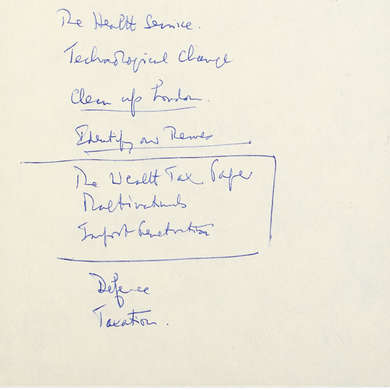
Image 1 of 4
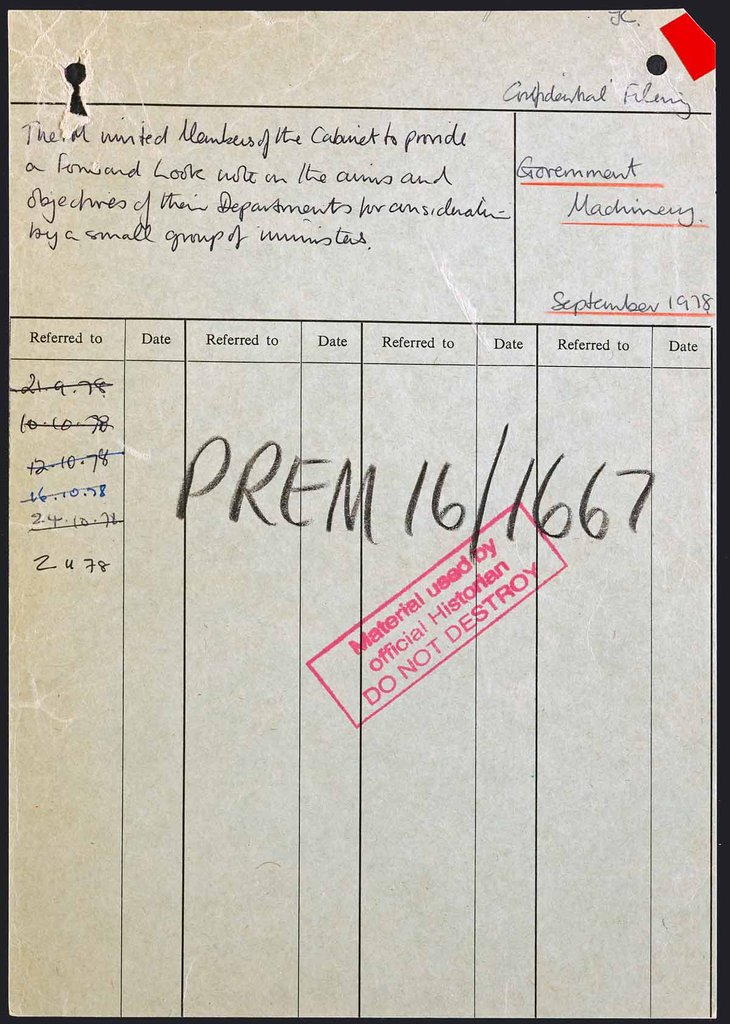
The cover of the file containing James Callaghan's notes.
Partial transcript
Confidential Filing
The invited Members of the Cabinet to provide a Forward Look note on the aims and objectives of their Departments for consideration by a small group of ministers.
Government Machinery.
September 1978.
Image 2 of 4
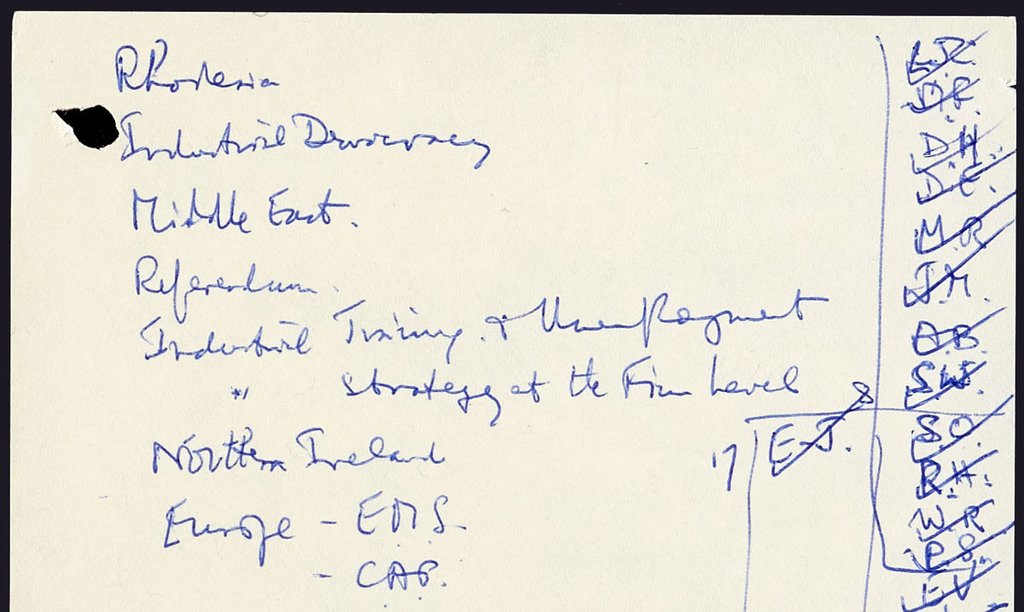
An extract from Callaghan’s notes. 'Referendum' likely refers to Devolution for both Scotland and Wales. 'EMS' refers to the 'European Monetary System' and 'CAP' refers to the 'Common Agricultural Policy'.
Partial transcript
Rhodesia
Industrial Democracy
Middle East.
Referendum.
Industrial Training & Unemployment
" strategy at the Firm Level
Northern Ireland
Europe – EMS.
– CAP.
Image 3 of 4
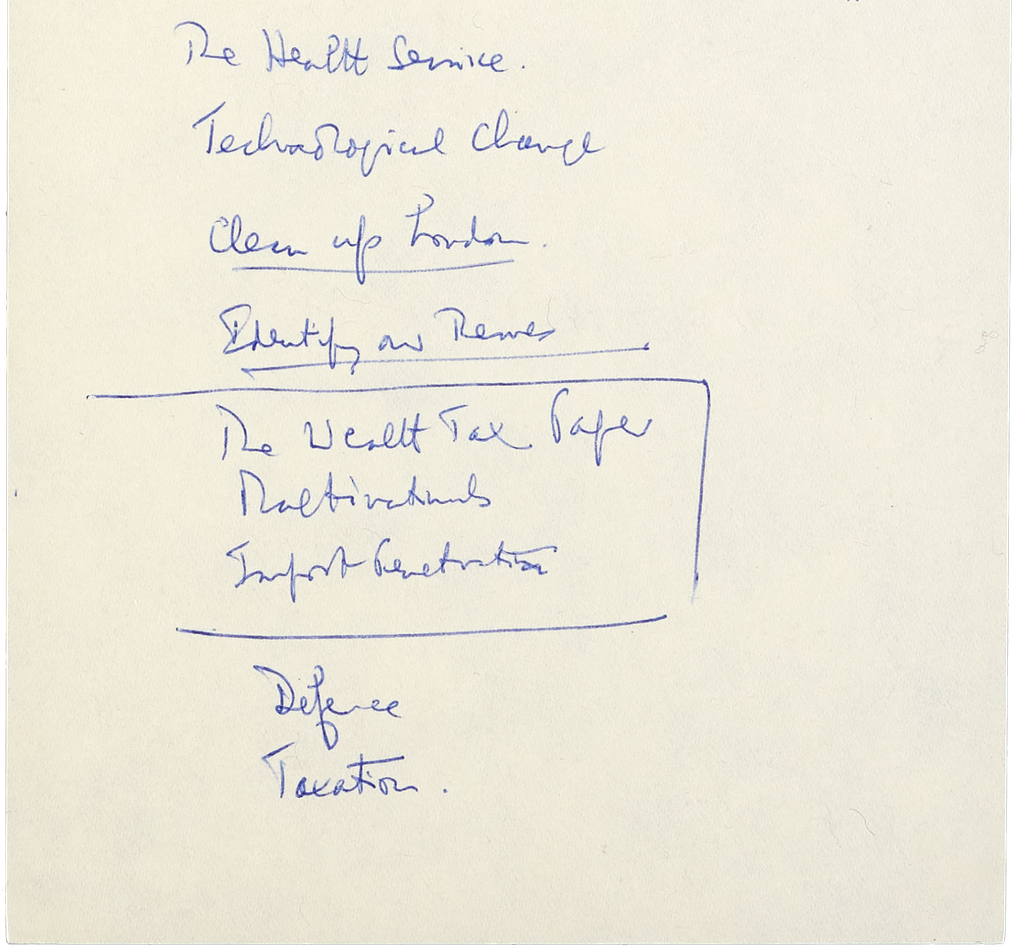
Callaghan’s lengthy list of issues to consider continues.
Transcript
The Health Service.
Technological Change
Clean up London
Identify our Themes
The Wealth Tax Paper
Multinationals
Import Penetration
Defence
Taxation
Image 4 of 4
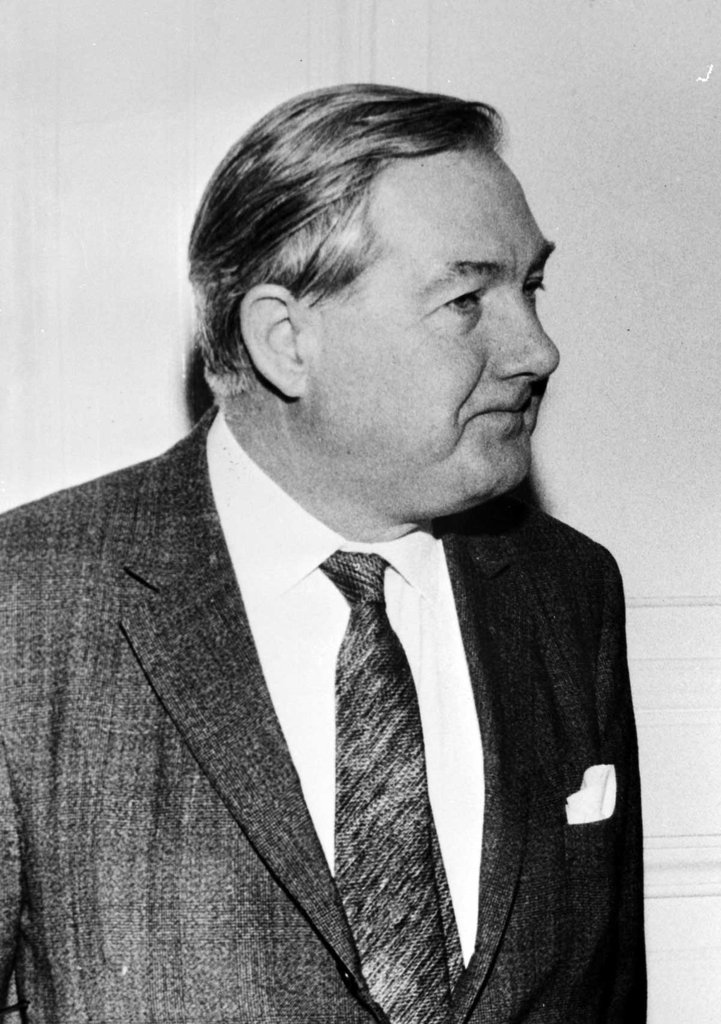
James Callaghan on 17 August 1970. Courtesy of The National Archives of The Netherlands (CC0).
Why this record matters
Date: 19 September 1978
James Callaghan had succeeded Harold Wilson as Labour leader and Prime Minister on 5 April 1976, steering a minority government through a difficult economic period. By mid-1978 things were looking more promising – inflation (which had peaked at 26% in 1975) was falling to 8%, and there was growing speculation about a general election. However, Callaghan decided to defer the election and soldier on through the winter. This surprise decision was announced on 7 September.
In the autumn of 1978, Callaghan was keen to explore key policy areas for the term ahead, for strategic reasons and with an eye on the forthcoming party conference. The Prime Minister discussed various future themes with his Cabinet on 14 September. This ‘Forward Look’ file contains 24 pages of handwritten notes made by Callaghan for a meeting with key advisors on future policy initiatives on 19 September 1978.
It isn’t entirely clear, but the notes appear to have been written beforehand, quite possibly at Cabinet, as they incorporate the views of ministers contributing to the discussion.
The notes reflect a virtual ‘A-Z’ of government activity: devolution, educational standards, fuel costs, immigration, inner cities, law and order, pollution, public expenditure, unemployment, technological change...the list goes on and on. The papers show the sheer range of topics that a Prime Minister in the modern age is expected to engage with, including some political considerations.
Callaghan’s decision to defer the general election is referred to by some commentators as his greatest mistake, as he was soon to face the ‘Winter of Discontent’ of December 1978 to mid-March 1979, a series of disruptive strikes across the public sector. This period of turmoil was a major factor explaining Labour’s defeat at the General Election of May 1979, which saw victory for the Conservatives led by Margaret Thatcher.
Blogs and podcasts
-
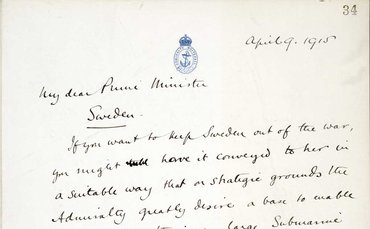
Guide: How to look for Prime Minister’s Office records
By The National Archives – 24 March 2015
Find out how to find records of the Prime Minister’s Office between 1916 and the early 1980s, and the private papers of British prime ministers going back to the 18th century.
-

Blog: How to research a famous person in The National Archives
By Mark Dunton – 15 January 2013
Join records expert Mark Dunton for a step-by-step explanation of how to research a famous person in The National Archives, using Prime Minister Margaret Thatcher as an example.